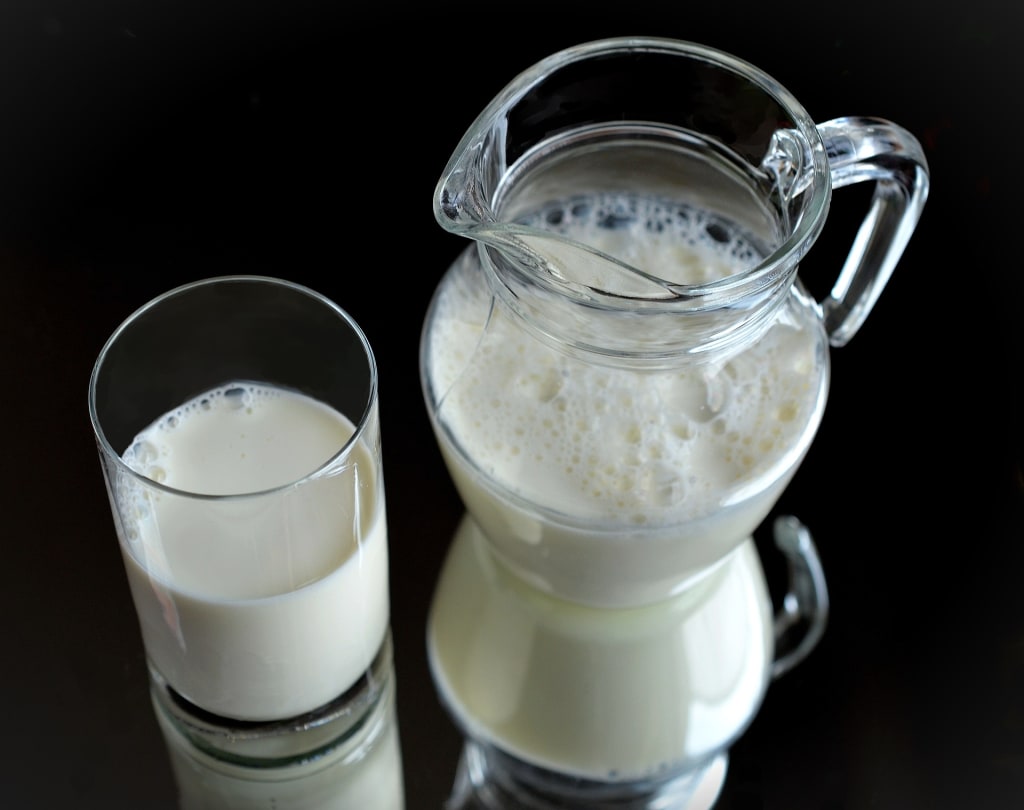TALKING POINTS: The PR Implications for Milk Labeling
What should the Milk vs. the Plant-Based Milk industry do with the new FDA Guidelines

On February 23, 2023, news broke that the Food and Drug Administration (FDA) in the United States proposed that non-dairy products made from soy, oats, and other plants could be labeled as "milk." This is a significant development for the dairy industry and the plant-based milk industry.
The public relations implications of this news are vast, as it is likely to spark debate and conversation among consumers, industry experts, and government officials. On the one hand, the dairy industry may feel threatened by the decision as it could lead to increased competition from plant-based milk producers. However, the decision may also create new opportunities for the dairy industry to expand their product offerings and appeal to consumers who are looking for more plant-based options.
For plant-based milk producers, the news is a clear win. For years, they have been fighting for the right to use the term "milk" on their products, arguing that it is a common and widely recognized term. The decision by the FDA validates their position and could help increase sales and market share as consumers become more aware of the variety of options available to them.
The FDA's decision also presents public relations opportunities for both the dairy and plant-based milk industries. Companies within these industries can use this news as a platform to showcase their products and educate consumers on the benefits of dairy or plant-based options. For example, dairy companies may choose to highlight the nutritional benefits of cow's milk, such as its high protein content and the fact that it is a natural source of calcium. Plant-based milk producers, on the other hand, may focus on the environmental and ethical benefits of their products, such as the reduced greenhouse gas emissions associated with plant-based agriculture.
In addition, the news could lead to increased collaboration between the dairy and plant-based milk industries. Rather than viewing each other as competitors, companies may see the benefit of working together to create new products that combine the best of both worlds. For example, a dairy company may partner with a plant-based milk producer to create a hybrid product that blends cow's milk with oat milk.
The decision by the FDA also highlights the importance of communication and transparency in the food industry. Consumers are becoming increasingly conscious of what they eat and where their food comes from. Companies that are transparent about their ingredients, production methods, and sourcing are likely to build trust and loyalty with consumers. This presents an opportunity for both the dairy and plant-based milk industries to showcase their commitment to transparency and build stronger relationships with their customers.
To reiterate, the FDA's decision to allow non-dairy products to be labeled as "milk" presents significant public relations implications and opportunities for both the dairy and plant-based milk industries. Companies within these industries can use this news to showcase their products, educate consumers, and collaborate to create new and innovative products. The decision also highlights the importance of transparency and communication in the food industry, as consumers become increasingly conscious of what they eat and where their food comes from.
THE REACH:
The decision by the FDA to propose allowing oat and soy-based products to be labeled as "milk" has received significant coverage in a variety of news outlets. Some of the outlets that have covered the story include:
CNN: CNN covered the story on their website, providing an overview of the FDA's proposal and reactions from industry groups and stakeholders.
The New York Times: The New York Times covered the story in their Business section, providing a detailed analysis of the potential impact of the FDA's proposal on the dairy industry and plant-based milk brands.
The Washington Post: The Washington Post covered the story in their Health and Science section, providing an overview of the FDA's proposal and reactions from industry groups and stakeholders.
NBC News: NBC News covered the story on their website, providing an overview of the FDA's proposal and reactions from industry groups and stakeholders.
Reuters: Reuters covered the story on their website, providing an overview of the FDA's proposal and reactions from industry groups and stakeholders.
NPR: NPR covered the story on their website, providing an overview of the FDA's proposal and reactions from industry groups and stakeholders.
USA Today: USA Today covered the story on their website, providing an overview of the FDA's proposal and reactions from industry groups and stakeholders.
The decision by the FDA to propose allowing oat and soy-based products to be labeled as "milk" has ALREADY received significant coverage in a variety of news outlets, reflecting the potential impact of this decision on the dairy industry, plant-based milk brands, and consumers. Both industries will need to act quickly to control the narrative.
TALKING POINTS: The Dairy Industry
To benefit from this news, the dairy industry and lobbyists could use some of the following strategies:
Highlight the Nutritional Benefits of Cow's Milk: Dairy industry and lobbyists could emphasize the nutritional benefits of cow's milk, such as its high protein content and natural source of calcium, compared to plant-based alternatives. They could also remind consumers that cow's milk is a complete protein, containing all nine essential amino acids that the body needs.
Emphasize the Traditional Nature of Cow's Milk: Dairy industry and lobbyists could emphasize the traditional nature of cow's milk and position it as a staple in the American diet. They could also promote the idea that cow's milk has been part of our cultural heritage for generations, and should not be replaced by new plant-based alternatives.
Question the Safety and Quality of Plant-based Milk: Dairy industry and lobbyists could raise questions about the safety and quality of plant-based milk, and whether they are truly equivalent to cow's milk. They could highlight the potential risks associated with plant-based milk, such as the use of pesticides and the potential for contamination during the manufacturing process.
Promote Dairy's Role in Supporting Local Farmers: Dairy industry and lobbyists could position the dairy industry as a key supporter of local farmers and rural communities. They could remind consumers that the dairy industry provides vital economic support to local communities and plays an essential role in preserving rural culture and way of life.
Collaborate with Plant-based Milk Producers: Rather than seeing plant-based milk as a threat, the dairy industry and lobbyists could explore opportunities for collaboration and innovation with plant-based milk producers. They could work together to create hybrid products that combine the best of both worlds and appeal to a broader range of consumers.
Frame the News as a Victory for Dairy: Dairy industry and lobbyists could position the FDA's decision as a victory for the dairy industry. They could highlight the fact that the FDA recognizes the importance of milk as a common and widely recognized term, and that this decision reinforces the value of cow's milk as a nutritious and essential part of the American diet.
Overall, the dairy industry and dairy lobbyists could use a range of strategies to spin the news in their favor and position cow's milk as a superior and traditional alternative to plant-based options. They could also explore opportunities for collaboration with plant-based milk producers and use this news to drive innovation and new product development.
TALKING POINTS: The Plant-Based Industry
Plant-based milk brands will be capitalizing on this news and benefit from the following plan:
Highlight the Health Benefits of Plant-Based Milk: Plant-based milk brands can emphasize the health benefits of their products, such as the lower levels of saturated fat and cholesterol compared to cow's milk. They can also highlight the fact that many plant-based milks are fortified with vitamins and minerals, making them a nutritious alternative to cow's milk.
Emphasize the Sustainability of Plant-Based Milk: Plant-based milk brands can position their products as a more sustainable alternative to cow's milk. They can highlight the reduced greenhouse gas emissions associated with plant-based agriculture and the fact that many plant-based milks require less water and land than cow's milk.
Appeal to Ethical and Environmental Concerns: Plant-based milk brands can appeal to consumers who are concerned about animal welfare and environmental issues. They can highlight the fact that plant-based milks are a cruelty-free alternative to cow's milk and that they have a smaller carbon footprint than traditional dairy products.
Promote the Variety of Options Available: Plant-based milk brands can use this news to promote the variety of options available to consumers. They can highlight the fact that there are many different plant-based milks to choose from, including almond, soy, oat, and hemp milk, among others.
Offer Competitive Pricing: Plant-based milk brands can offer competitive pricing to compete with traditional dairy products. They can highlight the fact that plant-based milks are often priced competitively with cow's milk and that they offer a similar nutritional profile at a lower cost.
Collaborate with Dairy Producers: Plant-based milk brands can explore opportunities for collaboration with dairy producers to create hybrid products that combine the best of both worlds. They can work together to create products that appeal to a broader range of consumers and offer a wider variety of options.
Overall, plant-based milk brands can use a range of strategies to capitalize on this news and position their products as a nutritious, sustainable, and ethical alternative to cow's milk. By highlighting the health benefits, environmental advantages, and variety of options available, they can appeal to a broad range of consumers and continue to grow their market share.
CONTROLLING THE NARRATIVE:
The FDA's proposed decision to allow non-dairy products to be labeled as "milk" presents significant public relations implications and opportunities for both the dairy industry and plant-based milk brands. While the dairy industry may face challenges in adapting to this new landscape, they can use various strategies to benefit from this news and spin it in their favor. On the other hand, plant-based milk brands can capitalize on this decision by highlighting the health benefits, sustainability, and variety of options available in their products. Regardless of which side of the debate a brand falls on, it is crucial to approach this news with a long-term PR strategy that considers both short-term and long-term goals. By doing so, brands can navigate this shifting landscape and position themselves for success in the years to come.
About the Creator
Andy Bhatt
Executive Director of SW & Associates Public Relations
https://smarturl.it/getresults
As the lead at the invite-only Media Relations and PR firm SW & Associates, Andy is the go to for major clients as well as select start-ups.






Comments
Andy Bhatt is not accepting comments at the moment
Want to show your support? Send them a one-off tip.